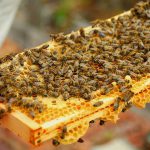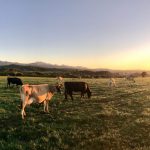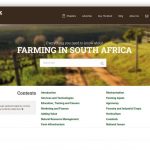
By Francois Baird, founder of the FairPlay movement
South Africa needs to focus on the plight of its small-scale farmers and find ways to support what is a critical component of the country’s food security and job creation.
Small-scale poultry farmers, lacking the financial resources of the big commercial producers, have been hit hard in recent years – first by Covid-19 disruptions, then by fertiliser, fuel and feed increases due to the war in Ukraine and most recently by persistent load shedding that disrupts production. Big and small producers are also being hit hard by the degradation of transport infrastructure, hampering delivery of agriculture inputs and outputs.
Now they face a nearly 19% increase in electricity prices, granted to Eskom by the electricity regulator Nersa. That huge price increase is being challenged by both political and business bodies and may ultimately be decided by the courts.
While the lawyers wrangle, small farmers suffer. Many are likely to go out of business, and jobs and skills – and access to affordable protein for poor people in rural SA – will be lost. Load shedding is crippling small farmers, and the electricity price increase will finish them off. The government cannot stand by and let this happen.
The country’s two agricultural master plans – promoting the agricultural and agro processing sector and the poultry industry – both focus on expansion and job creation, particularly at small farmer level. Both plans should be revisited urgently and revised to enable small-scale farmers to survive the next few years.
Unlike their counterparts around the world, South African farmers do not get government subsidies – the government won’t even compensate poultry farmers for the millions of birds culled due to bird flu. A scheme aimed at keeping small-scale farmers in business over the next few years, compensating them in particular for losses due to load-shedding, would yield great benefits in the future. A range of other incentives can also be considered such as tax rebates, exempting feed input costs from VAT and similar initiatives. Poor consumers would benefit from VAT free local chicken.
FairPlay supports the position of the African Farmers Association of South Africa that the focus should be on what is practical and implementable, given current needs and circumstances. They are also arguing for support for alternative energy and backup equipment to help farmers survive the daily disruptive power cuts.
Small-scale farming has been disgracefully neglected, despite its potential contributions to food security and job creation. As pointed out by Wandile Sihlobo, one of the country’s leading agricultural economists, back in 2012 South Africa’s National Development Plan held out the prospect that nearly million jobs could be created in agricultural production and processing.
But, year after year, other challenges distracted the country from its agricultural growth goals.
The current crisis is an opportunity for government to execute its plans, at last. The electricity crisis will be with us for some years, eating away at agricultural production and jobs. Only urgent action on keeping agriculture going, and in particular the survival of poor consumers, small farmers and their employees, can help avoid a food security collapse.
That means that small-scale farming must get special attention from President Cyril Ramaphosa, and from the ministers involved in the agricultural master plans – Agriculture Minister Thoko Didiza and Trade, Industry and Competition Minister Ebrahim Patel, as well as Mines and Energy minister Gwede Mantashe and transport minister, Fikile Mbalula.
Avoiding agriculture Armageddon requires execution, urgent action at top government level, and not talk and promises. Lives and livelihoods are at stake.
Photo by Steven Weeks on Unsplash







